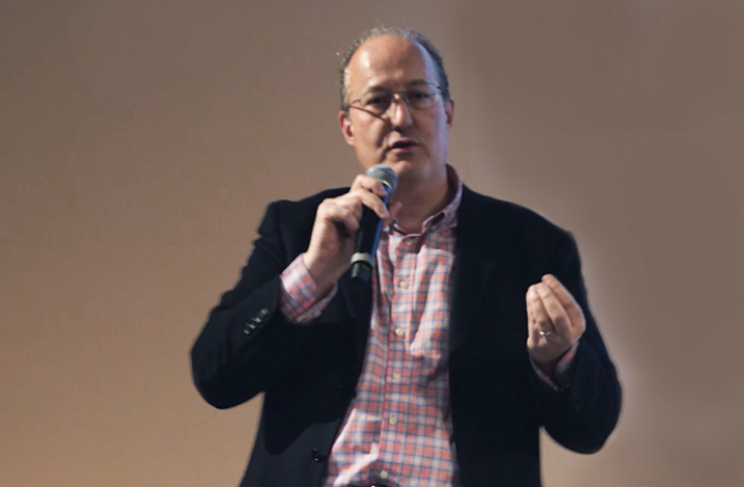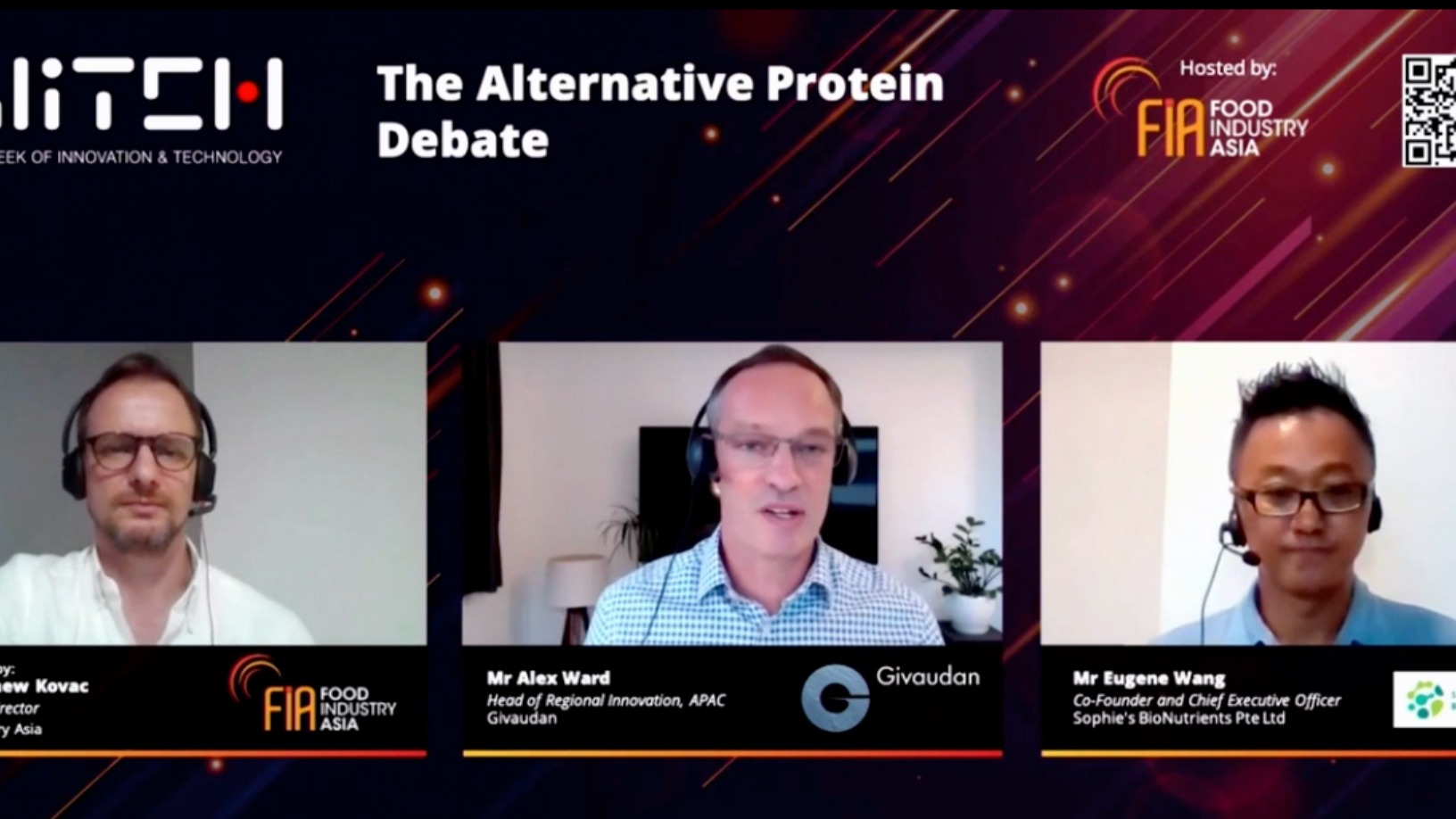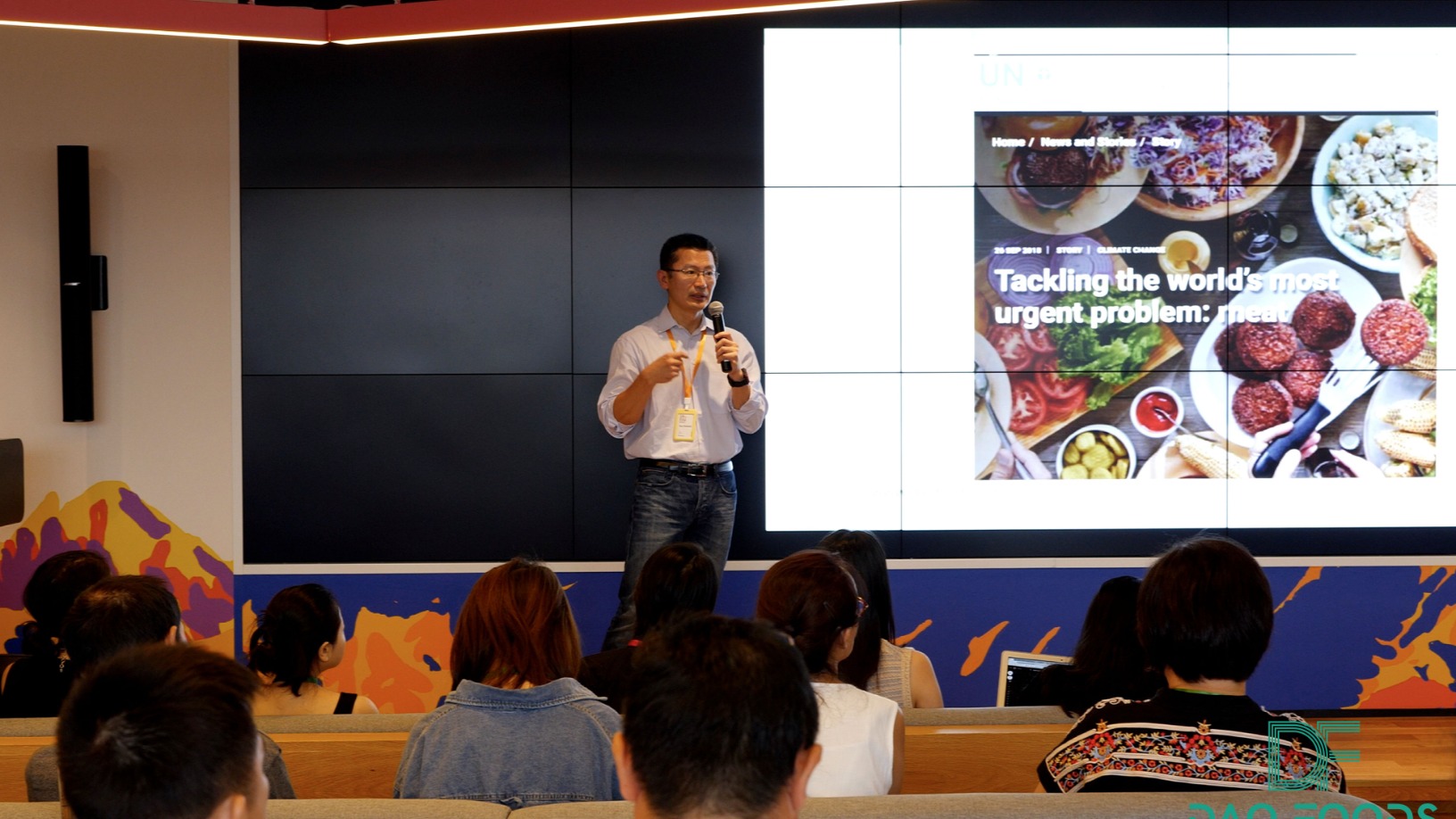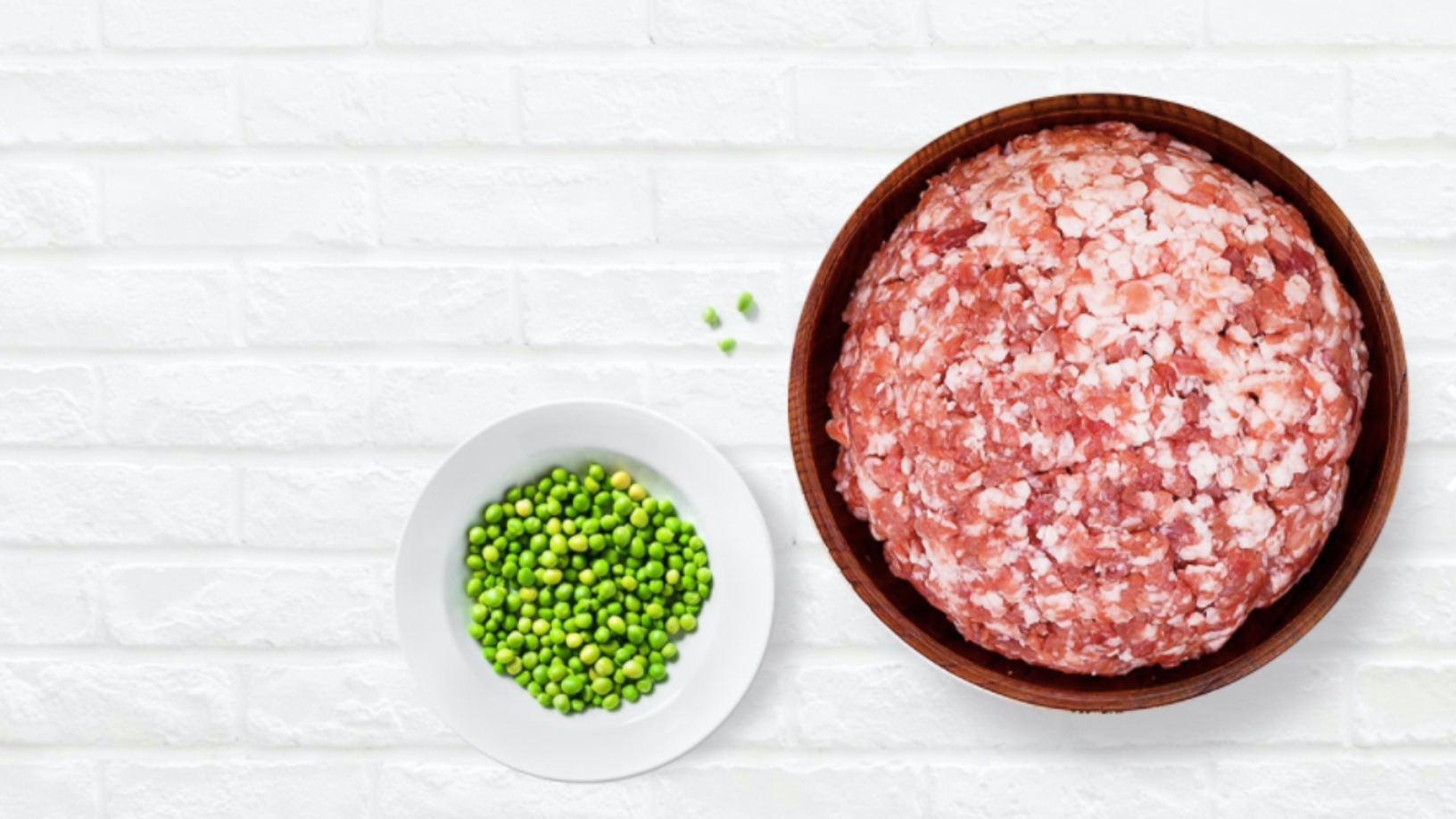Asia will be at the forefront of cell-based meat innovation, outpacing the US and Europe, the current market leaders in alternative protein, predicts food investor Andrew D Ive.
“I think Asia will lead innovation in cell-based meat, seafood and dairy,” said the managing general partner and founder of the New York- and Singapore-based venture capital and accelerator firm, Big Idea Ventures (BIV). Its first fund, the $50m New Protein Fund, has invested in seven cell-based meat startups. “Europe and North America could get behind, if [the Asians] really do invest and become the leaders in it.”
Ive began investing in foodtech startups in 2015 as the managing director of SOSV’s Food-X accelerator. Speaking in an interview in December 2020, shortly after Singapore became the first country to approve the sale of lab-grown chicken for human consumption, Ive said other countries in Asia – home to nearly half a billion of the world’s undernourished people – would be similarly motivated to support cell-based meat as an answer to food security.
“We've all seen, with Covid-19, that the food supply chain is not as robust or as reliable as we thought,” he said. “Relying on your trading partners and neighbors to provide all or majority of the food to feed your population is not the best way for the future. Cultured or cell-based meat, seafood, and dairy allows a country to have more food security.
“We're just at the beginning of that whole new cultured meat industry,” he continued. “It's not just a bubble. We're at the beginning of something transformative.”
US-Singapore network
Ive left SOSV to establish Big Idea Ventures so he could “focus on solving the world’s greatest challenges by seeking out and supporting great entrepreneurs.”
BIV is headquartered and runs accelerators in New York and Singapore. Temasek, the Singapore sovereign wealth fund, is an anchor investor, alongside US food giant Tyson Foods and Swiss multinational plant equipment manufacturer Bühler Group. “We are the only fund Tyson has invested in,” Ive said.

“We were the first alternative protein accelerator in Singapore,” he added. “The Singaporean government backed us in our fund, and they backed our accelerator. They have a fantastic vision of how Singapore is going to be the leader in the future of the food ecosystem in Asia."
With a goal of investing in 70–80 startups, BIV launched its New Protein Fund in April 2019. Now running its third cohort, the fund has backed 40 plant-based and cell-based protein startups so far, either through its accelerator or directly. BIV also launched a second fund, Generation Food, with a target size of $250m, in April 2020.
Its current portfolio includes Asia’s most-funded cell-based seafood startup Shiok Meats, which has raised $20.2m to date; MeliBio, which uses microbial fermentation to create honey without bees; Atlanta-based Revolution Gelato and Beijing-based Zhenmeat.
The fund scored its first exit with Belgian cultivated fat producer Peace of Meat, which joined the BIV accelerator last year, when it was fully acquired by Tel Aviv Stock Exchange-listed Meat-Tech 3D.
Invest in food for impact
So far 60–70 startups from Asia and 140–150 from North America have applied to join BIV’s accelerator for the next cohort. US startups make up the bulk of those shortlisted, followed by Indian startups and a handful from other Asian countries. “So, I'd like to see a lot more companies coming through from Asia,” Ive said.
It was at Food-X that Ive decided he wanted to focus on alternative protein – “the area where there was the most innovation; also the most opportunity, from an impact perspective.”
So, he left Food-X to start BIV in November 2018. “Food-X was very broad, investing in many categories in the food industry from hardware, software to supply chain and sustainability.” Without focusing on a specific area, it is very difficult to create an ecosystem to benefit all portfolio companies, he said.
I'd like to see a lot more companies coming through from Asia
Offering a viable alternative source of protein would help shift the market away from inefficient animal farming, which Ive says is second only to transportation in contributing to climate change.
“If we could bring great-tasting, good-priced [alternative] foods to the meat, seafood and dairy space, then we would potentially reduce the reliance that we have as a global population on animal factory farming, on overfishing of the oceans and on the dairy industry.”
More foodtech IPOs?
Ive reckons the overall foodtech ecosystem is starting to strengthen as it offers better exit opportunities for investors, who have tended to prefer other sectors with quicker and more spectacular returns.
“Many investors in the food industry are corporates putting money into young companies and ultimately acquiring them, but this may change," he said. “We're likely to see more IPOs because a lot of these young [alternative protein] companies are truly innovating and able to grow revenues rapidly enough to maintain their independence and move quickly toward an IPO.”
Meanwhile BIV’s second fund, Generation Food, will invest in startups working on reducing plastic, water, CO2 emissions and waste throughout the food production system. “If we're going to produce food, we need to do it with a more sustainable footprint,” Ive said.
Generation Food will start investing in Series A and B, or even later-stage, companies from 2021 and has a dedicated team to build and invest BIV’s second fund.
“The reality is when you start a fund, it probably takes you 12 months to understand how you are going to be different in the marketplace than the other funds out there, and to be able to communicate that strongly and clearly to potential investors,” he said.
A surge of investor interest in alternative protein startups last year also proved timely. In the first quarter of 2020, “more money went into plant-based and cell-based companies as investments, versus the entire 2019,” Ive said. “We have been able to close more money from investors over the last six months than the prior year.”
We were able to close more money from investors over the last six months than the prior year
BIV is also expanding its accelerator programs to Europe and India in 2021 (“the accelerators work together across the major markets globally”). In October 2020, BIV launched the India Alternative Protein Fund with two local partners – financial services firm Ashika Group and not-for-profit Good Food Institute India. The Mumbai-based program will support startups involved in developing plant-based, fermentation-derived and cultivated protein-based food.
Lifetime relationships
Ive described the initial fundraising for the New Protein Fund as “challenging.” Most investors took a wait-and-see attitude. “It was our first fund and people wanted to see how we would do, whether we're getting a good portfolio and making good investments.”
About 30% of the fund is invested through the accelerator programs, $200,000 for each startup in exchange for about a 7% stake in each company. The remaining 70% is used as direct follow-up investments in selected portfolio companies.
Each program, which is conducted biannually, lasts 20 weeks, almost double the length of time at other accelerators like Food-X. “That’s necessary to help the companies we're working with. I always felt we were just getting started in the traditional 12-week programs," Ive said.
Besides funding support, BIV provides the selected startups with access to test kitchen facilities, food technology experts as mentors and assistance with production and scaling.
“By bringing innovative startups together with large food companies which have different expertise, we have been able to get better at producing products that look, smell and taste like the foods that we're attempting to replace or to substitute.”
And it’s not just a five-month relationship, “it’s for a lifetime,” he said. “BIV will continue to work with the startups on a monthly basis after the acceleration ends.”
The majority of the 40 companies in the New Protein Fund portfolio have closed follow-on funding, “in many cases with 7-digit-USD investment.” He added: “About 80% of the companies in our first cohort have received follow-on funding over the last 12 months,” with nearly half receiving funding from outside investors.
Ive said he started BIV when he was about to turn 50 and had his teenage daughter in mind. “I came to the conclusion that the next 10 years were the time where I was going to be able to have maximum impact in my personal career – what can I do from a business perspective, taking all of the lessons I've learned – which will ultimately allow me to make the biggest positive impact on the planet … solving big challenges.”
And it’s entrepreneurs, scientists and engineers who will solve the world’s challenges, be it global warming, water shortage or malnutrition, he said.
"By making investments in companies that will potentially change industries, we can not only make good returns but also do good.”
CORRECTION: Because of an editing error, Andrew D Ive’s title was misstated in an earlier version of this article.











